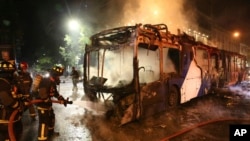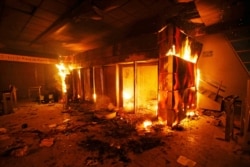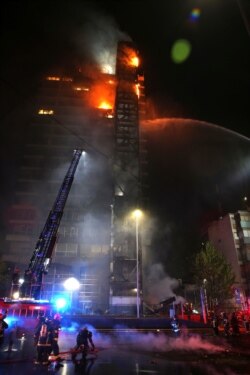Chile’s president declared a state of emergency in Santiago Friday night and gave the military responsibility for security after a day of violent protests over increases in the price of metro tickets.
“I have declared a state of emergency and, to that end, I have appointed Major General Javier Iturriaga del Campo as head of national defense, in accordance with the provisions of our state of emergency legislation,” President Sebastian Pinera said.
Throughout Friday, protestors clashed with riot police in several parts of the city and the subway system was shut after attacks on several stations.
Violent clashes escalated as night fell, and the ENEL power company building and a Banco Chile branch, both in the city center, were set on fire and several metro stations hit with Molotov cocktails.
The unrest started as a fare-dodging protest against the hike in metro ticket prices, which increased from 800 to 830 peso ($1.17) for peak hour travel, following a 20 peso rise in January.
Attacks on metro stations forced the closure of the entire subway system, which is the key form of public transport in the congested and polluted capital, carrying 3 million passengers a day.
“The entire network is closed due to riots and destruction that prevent the minimum security conditions for passengers and workers,” the metro operator said on Twitter, after attacks against nearly all the 164 stations where many gates and turnstiles were destroyed.
The Santiago Metro, at 140 kilometers (90 miles) the largest and most modern in South America, is expected to remain closed this weekend and could reopen gradually next week.
Closure of the metro forced many Santiago residents to walk home, sometimes long distances, resulting in scenes of chaos.
Protesters erected barricades in various parts of the city and clashed with police, who used water cannon and tear gas in the most violent street battle seen in the Chilean capital for a long time.
Pinera slammed the protesters as criminals.
“This desire to break everything is not a protest, it’s criminal,” he said in a radio interview.
On Thursday, 133 people had been arrested for causing damage to metro stations, estimated at up to 500 million pesos ($700,000).


